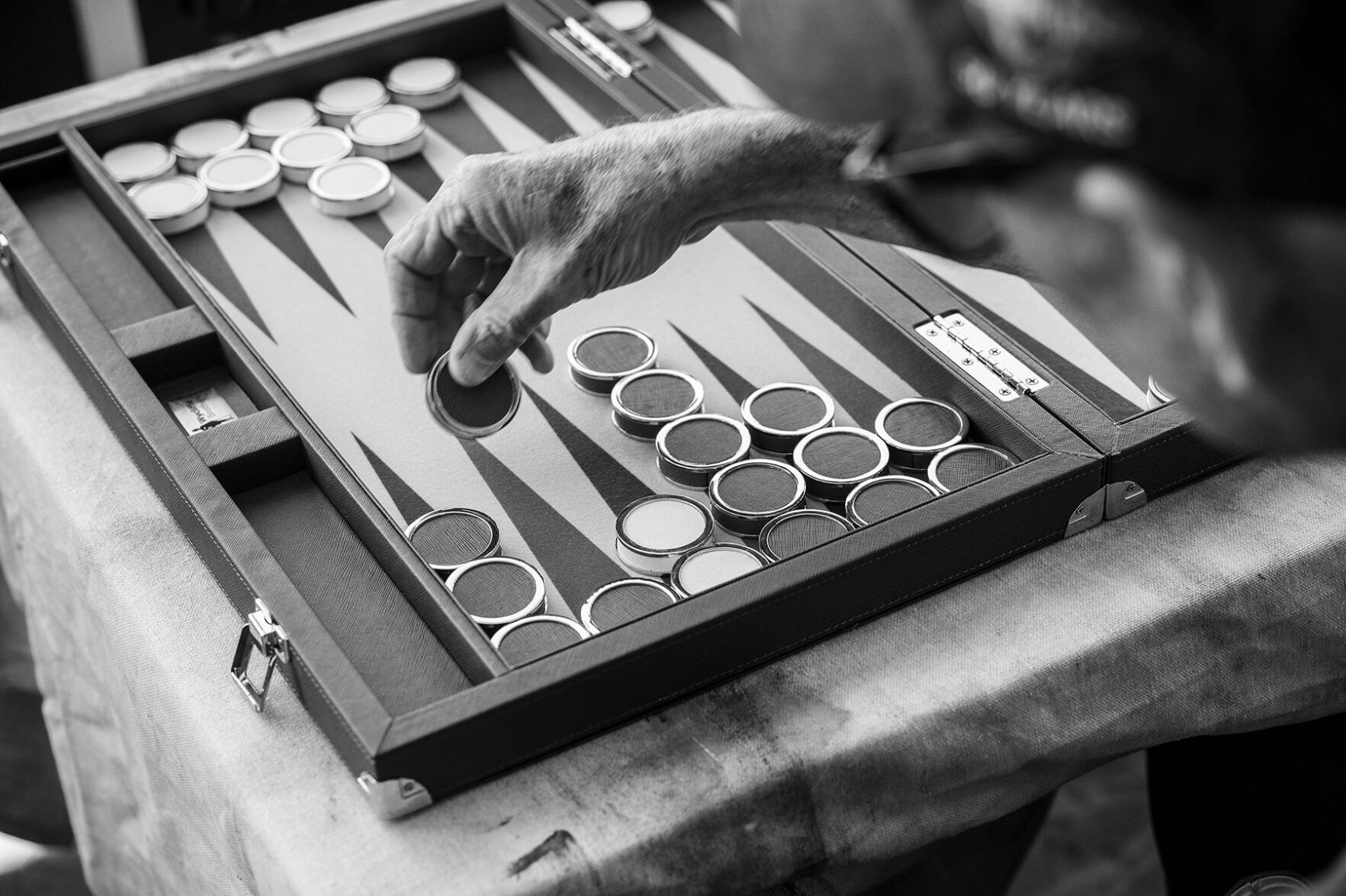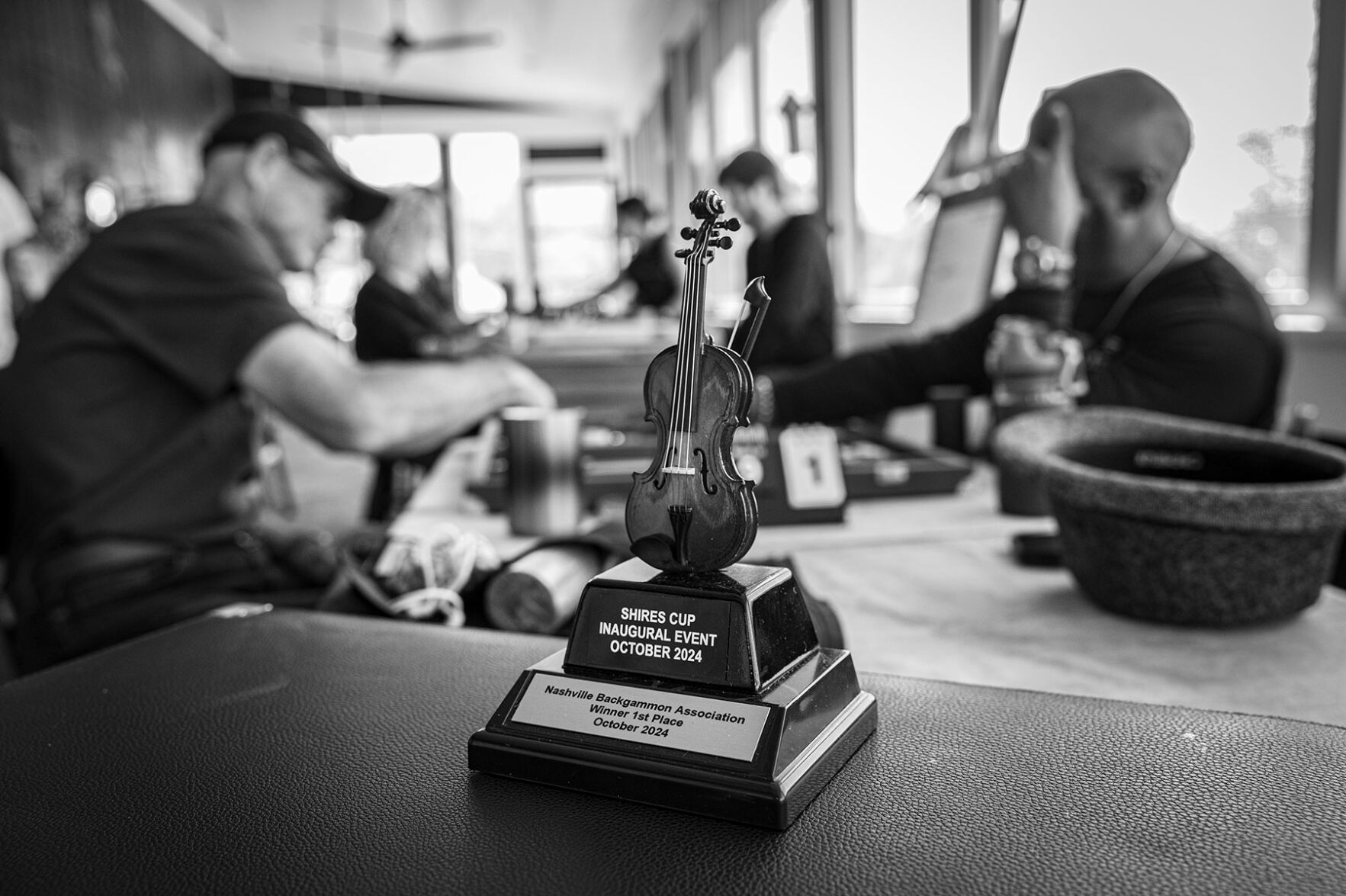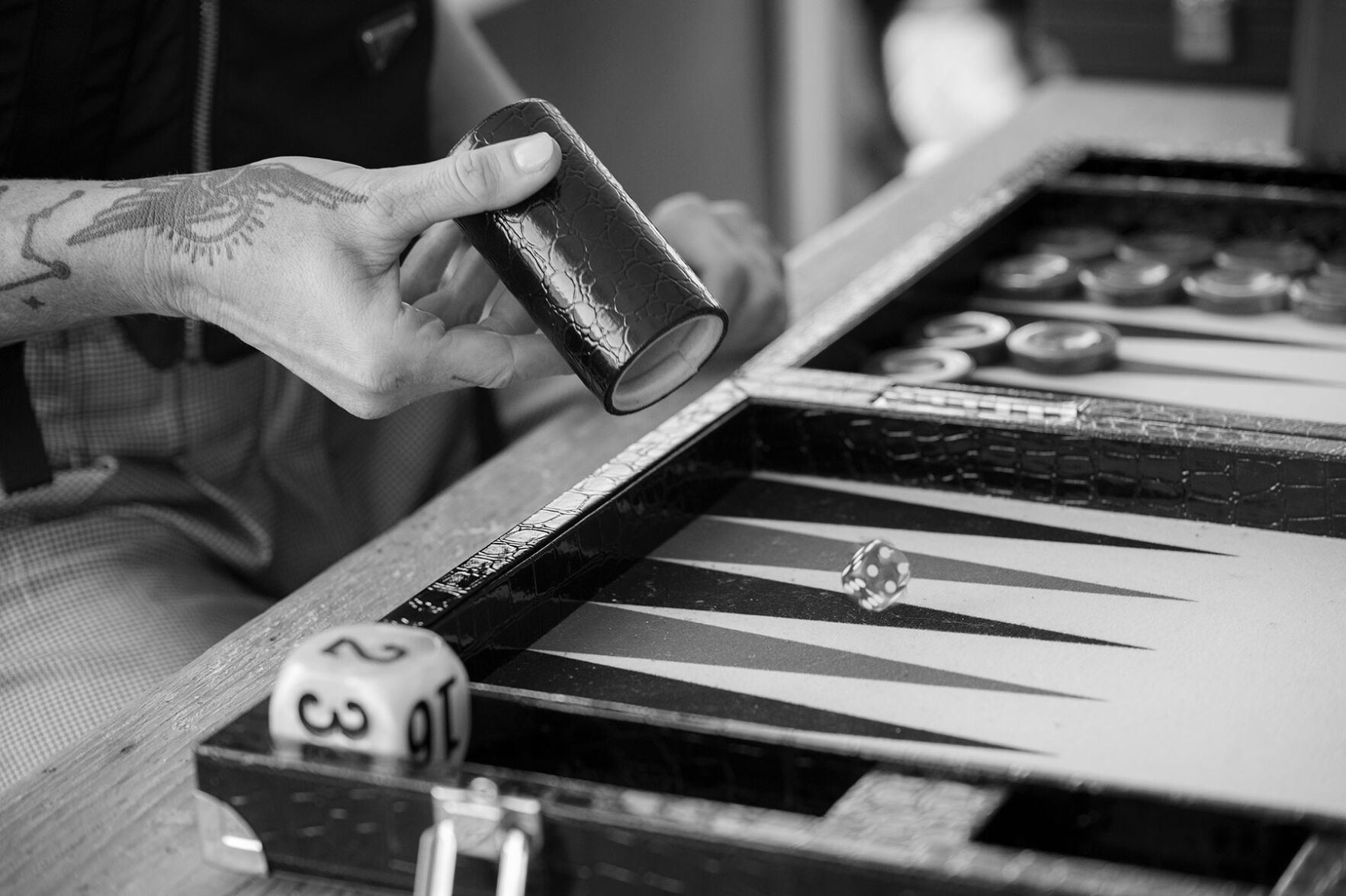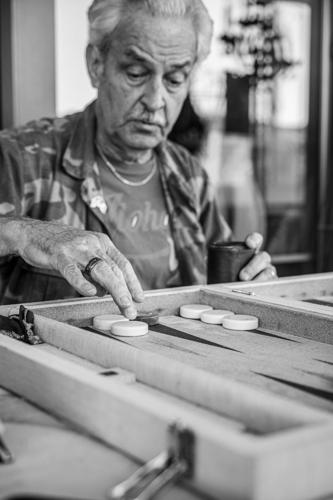In the Club is a recurring series in which the Scene explores Nashville’s social club offerings.
If you’re ever at the Midtown bar Hi-Fi Clyde’s on a Tuesday evening, you might stumble upon a dozen or so folks thoughtfully gazing at rows of checkers on ornate wooden boards. You might also hear the clatter of dice and the “Aha!” that accompanies a good roll. These are the members of the Nashville Backgammon Association, a club that has met in Music City for 26 years.
I was invited to a meeting by Rollow Mickle, one of the group’s most consistent and colorful members. By the time I left, I had a grasp on the rules — and an urge to search the App Store for a way to play the game on my own time.
Mickle, a Marine Corps veteran, says he learned the game in Hawaii back during its 1970s heyday. He boasts tournament victories over top players and proudly shows me a souvenir game piece from a 1978 tournament billed as backgammon’s “first million-dollar tournament.”
“I play more [based] on having played for 50 years, and I’ve seen every situation,” he says.

I watched him face off against Stephen Trundy, whom even Mickle says is probably the group’s top player. They explained the game to me in excited, almost dizzying tones as they rolled dice and shuffled their pieces around the long, skinny triangles on the board. The goal of backgammon is to race your pieces to the end of a board by rolling two dice, before rolling again to “bear off” your pieces, or remove them from the board. Your opponent races them the opposite way and can try to block your pieces, or “hit” them back to the starting line. There are elements of chance, strategy, probability and even gambling theory thanks to a doubling cube that can raise the stakes of a game. (At the Nashville Backgammon Association, players don’t wager directly on games but contribute a few bucks to a pot that goes to the winner of each week’s knockout tournament. New players usually aren’t asked to pay.)
I got a better grasp on the rules, of course, when I played a game myself. My first opponent was JP White, a retired IT specialist who took an interest in the game when developers first programmed computers to play it in the 1990s. He found places to play backgammon online but wanted to replicate the tactile, community-based experience of playing in person.
“It frustrated me that I couldn’t find a local club,” White says. “I thought, ‘Well, rather than being frustrated, why not just create a club?’”

The more I played, the more I understood his point. I love games and enjoyed picking up strategy and winning good rolls, but I also found that the members of the NBA — the Nashville Backgammon Association, what else? — maintain friendly banter over the board, even occasionally congratulating each other for killer moves. I learned that the term “backgammon” actually refers to a type of particularly deflating way to lose a match, sort of like if we called football “fumble at the goal line” or hockey “shutout.”
I also learned that, since the dice provide an element of luck, you always feel like you have a chance to win.

“It’s referred to by a lot of people as ‘the game of life,’” says White. “You can’t guarantee an outcome by doing the right thing, but you can tip the balance of favor. … That’s just enough to make an edge over time.”
Kristin Westerman, who joined the group earlier this year, joined not just for community, but also to sharpen her skills. Westerman is a former math teacher, and she’s drawn to the probability and strategy elements of the game. One of her “bucket list” items is to play at a major tournament like the Miami Open Backgammon Championship.
“It’s so fun — it’s addictive,” Westerman says. “I’ve been trying to now make my game better, learn more and study it here.”
Westerman got to test her skills at the inaugural Shires Cup, hosted by country singer and fiddler Amanda Shires. Shires is another recent convert to the game who says she picked it up during a difficult personal year.

“I was finding it to where I couldn’t paint or do music,” Shires tells the Scene. “I was like, ‘I need a hobby, something to get me out of the house.’”
Shires found Mickle on Google and started taking lessons from him. “I got a couple of books, like I went all-in,” she says. As she played more, she discovered several people in the Nashville music community already played, from Jack White’s bassist Dominic John Davis to Sugarland’s Annie Clements.
“I encourage people, if they find themselves in the fucking worst pit of their lives, find something to do,” Shires says. “Get yourself some friends! Do something different!”
Westerman finished runner-up in the first Shires Cup, a confidence-boosting win she can build on before heading to major competitions in the future. As for Shires, she was knocked out in the first round — but I’d wager she still considers the event a success.
“It probably took me five months to feel decent at it, but that’s because I’m hard on myself,” Shires says. “I mean, I don’t have to be good at everything. We don’t have to be good at it. We just have to enjoy it.”






